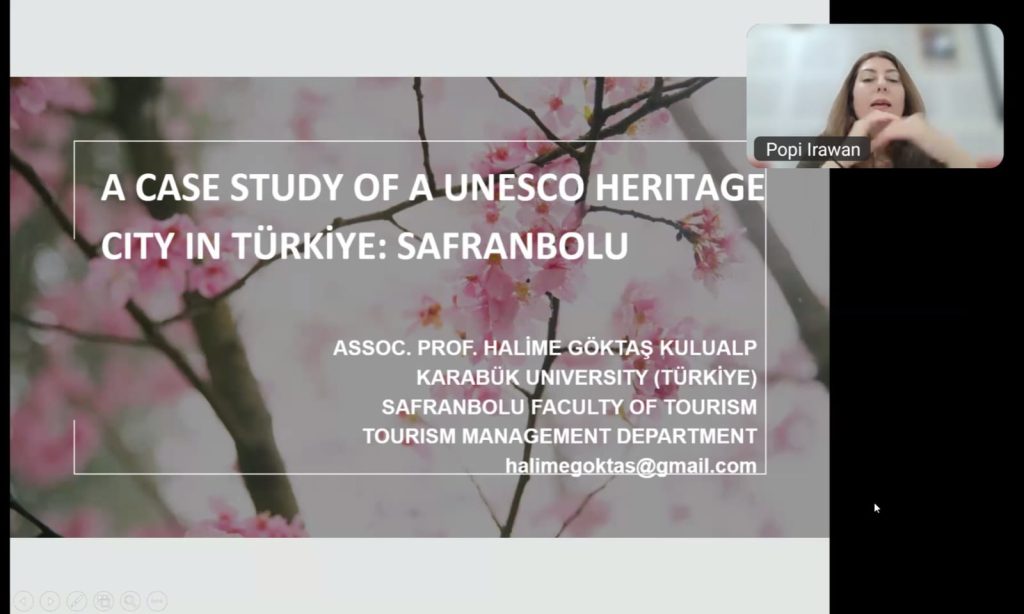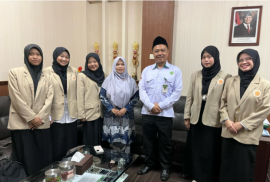Yogyakarta, September 2, 2025 – The Undergraduate Tourism Program, Faculty of Cultural Sciences, Universitas Gadjah Mada, held an international guest lecture under the ERASMUS+ Staff Mobility program with the theme “Sustainability and Sustainable Practices in Tourism Enterprises.” The lecture featured Assoc. Prof. Halime Göktas Kulualp from Karabük University, Turkiye, shared valuable insights through the case study of Safranbolu, a UNESCO World Heritage City recognized since 1994.
In her presentation, Prof. Kulualp described Safranbolu as a small but historically rich town in Karabük Province, located in the Black Sea region of Turkiye. For centuries, it served as an important stop on the ancient Silk Road, a trade route connecting Asia and Europe. The town has witnessed the presence of great civilizations, including the Hittites, Romans, and Byzantines, and reached its golden age under the Ottoman Empire. During this period, caravanserais such as the famous Cinci Han were established to host merchants and travelers passing through the region.
What makes Safranbolu truly unique is its remarkable Ottoman architecture. The town is renowned for its traditional houses, many of which are more than 300 years old, characterized by whitewashed walls, wooden frames, large windows, and private courtyards. These houses are living examples of how Turkish people once lived. Beyond its architecture, Safranbolu is also surrounded by natural beauty, with stunning sites like Tokatl Canyon and Bulak Caves attracting both domestic and international visitors.
The name Safranbolu comes from “saffron,” a rare and precious spice that grows in the area, combined with the name of the nearby region, Bolu. This name reflects the city’s cultural identity and historical wealth. UNESCO’s recognition highlights Safranbolu’s authenticity, integrity, and its importance as a living heritage for humanity. According to Prof. Kulualp, Safranbolu’s success in preserving its cultural legacy while embracing tourism offers an inspiring example of how heritage conservation and sustainable development can go hand in hand.
Through this guest lecture, UGM Tourism students were encouraged to see tourism not only as an economic activity but also as a responsibility to safeguard cultural heritage. The story of Safranbolu reminds us that sustainability in tourism is essential to protect history while ensuring benefits for local communities and future generations.
[Public Relations of FIB UGM, Candra Solihin]







